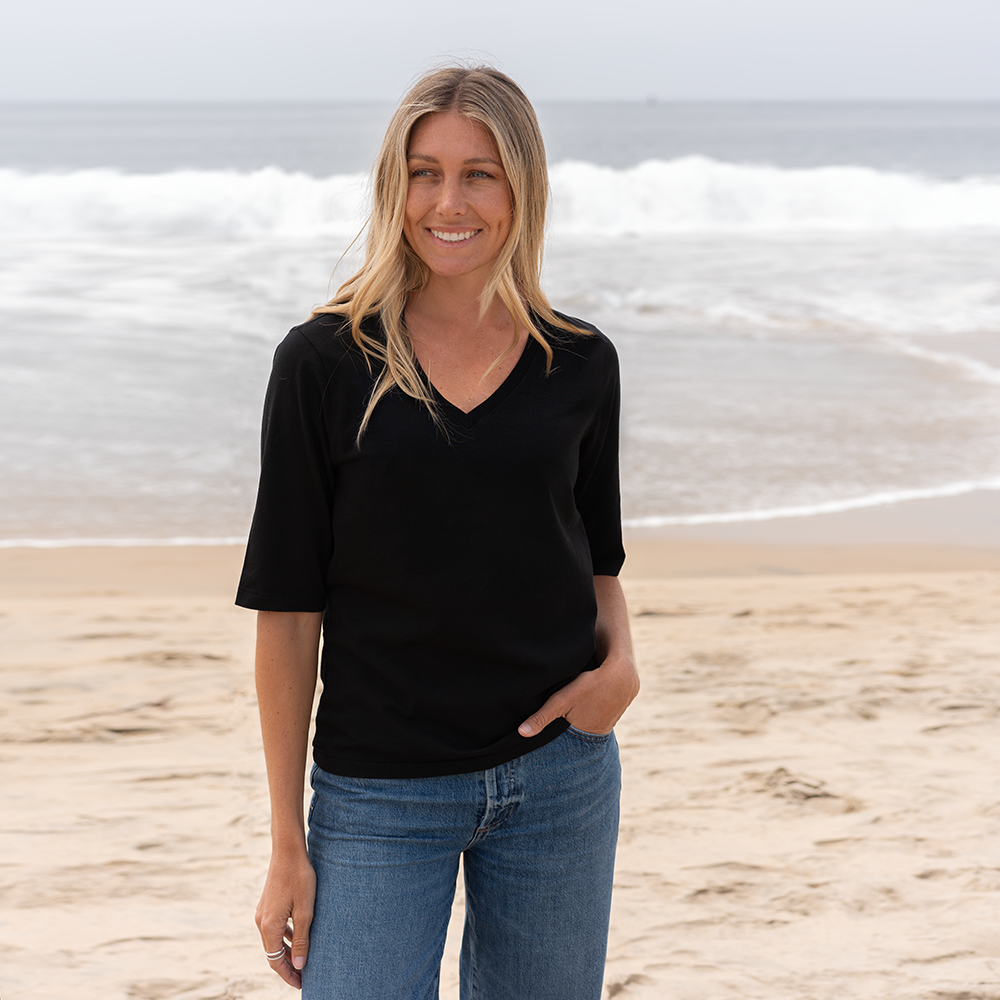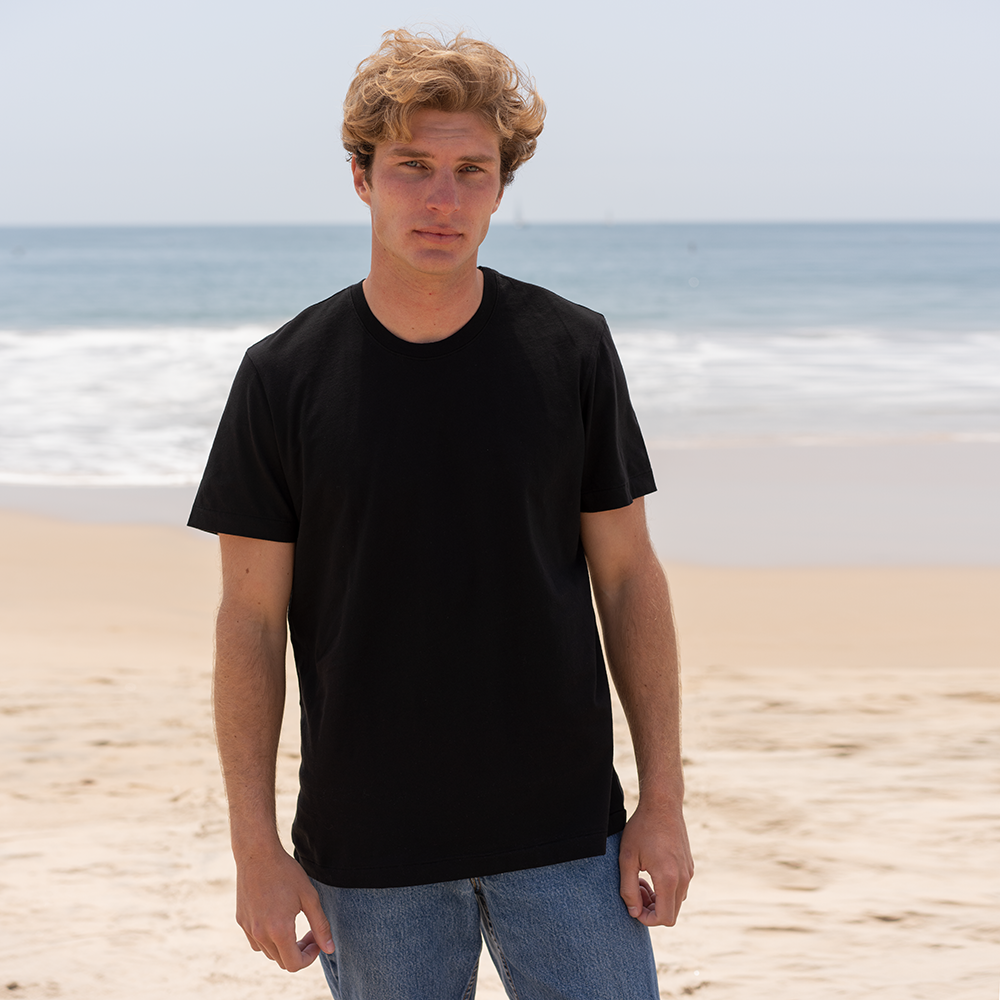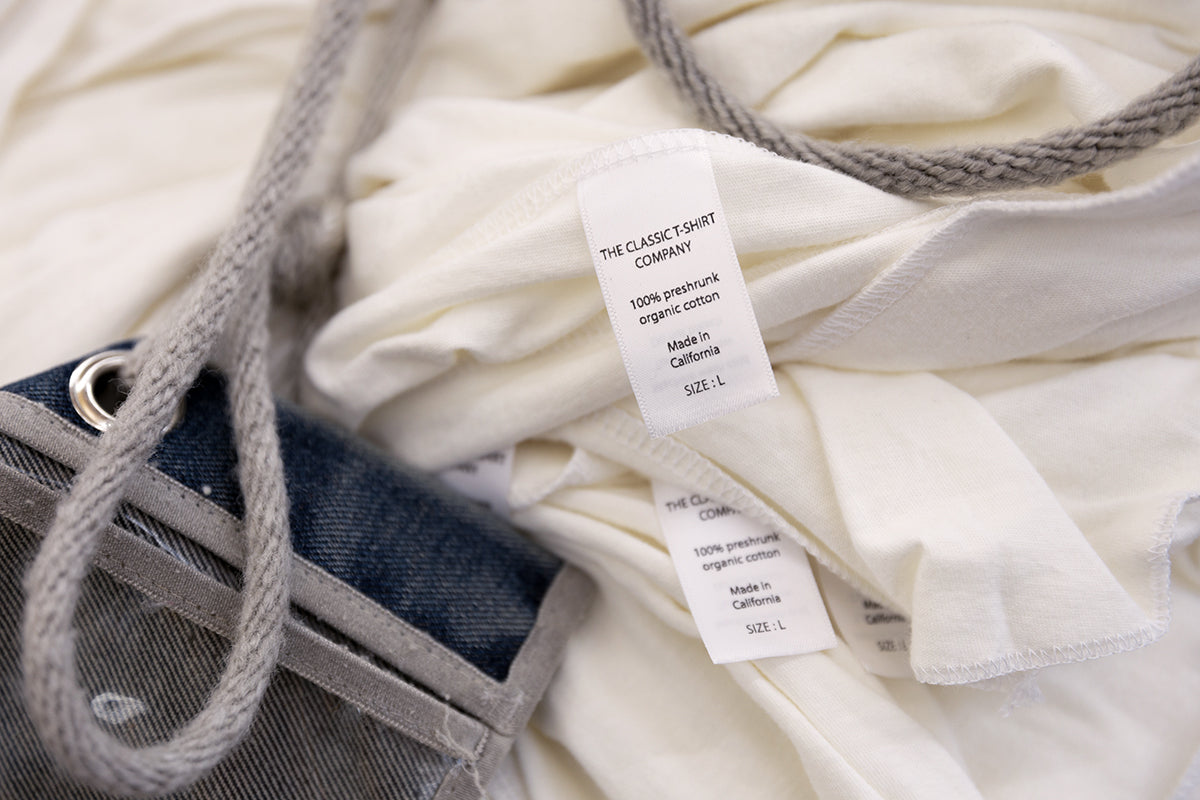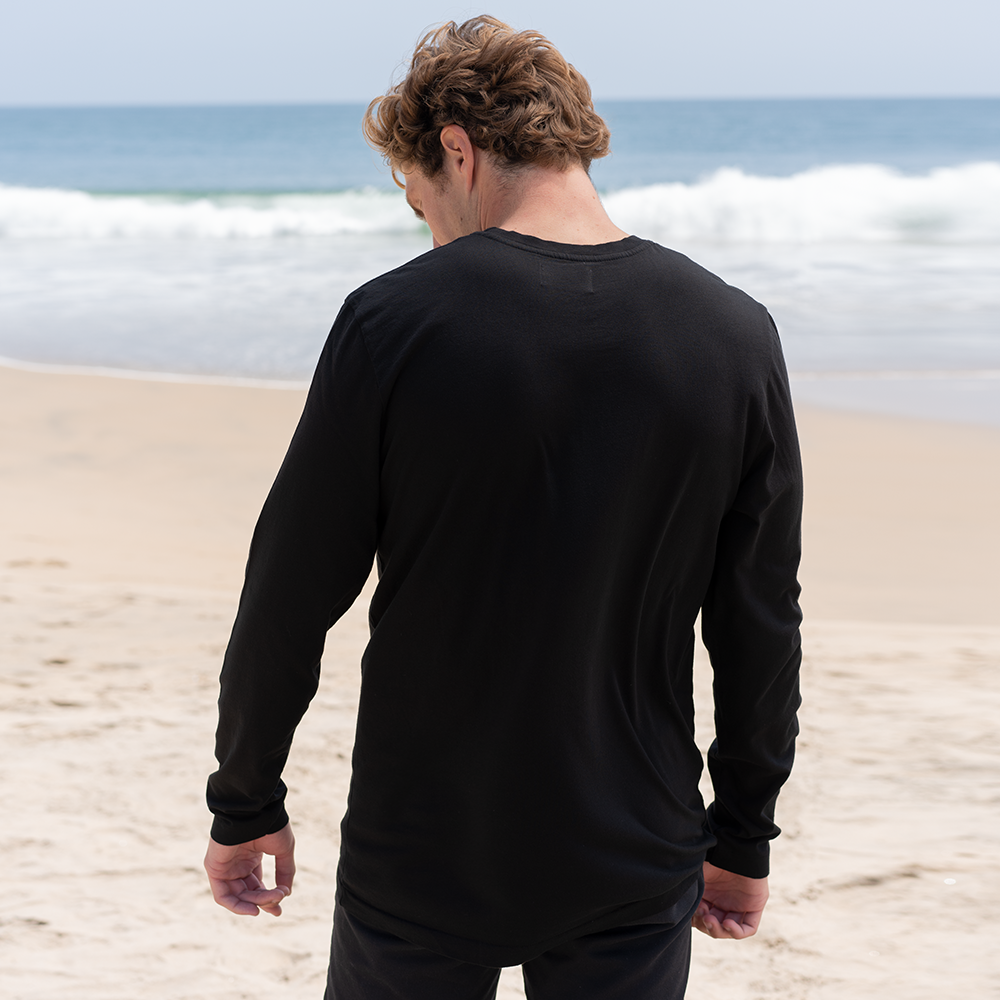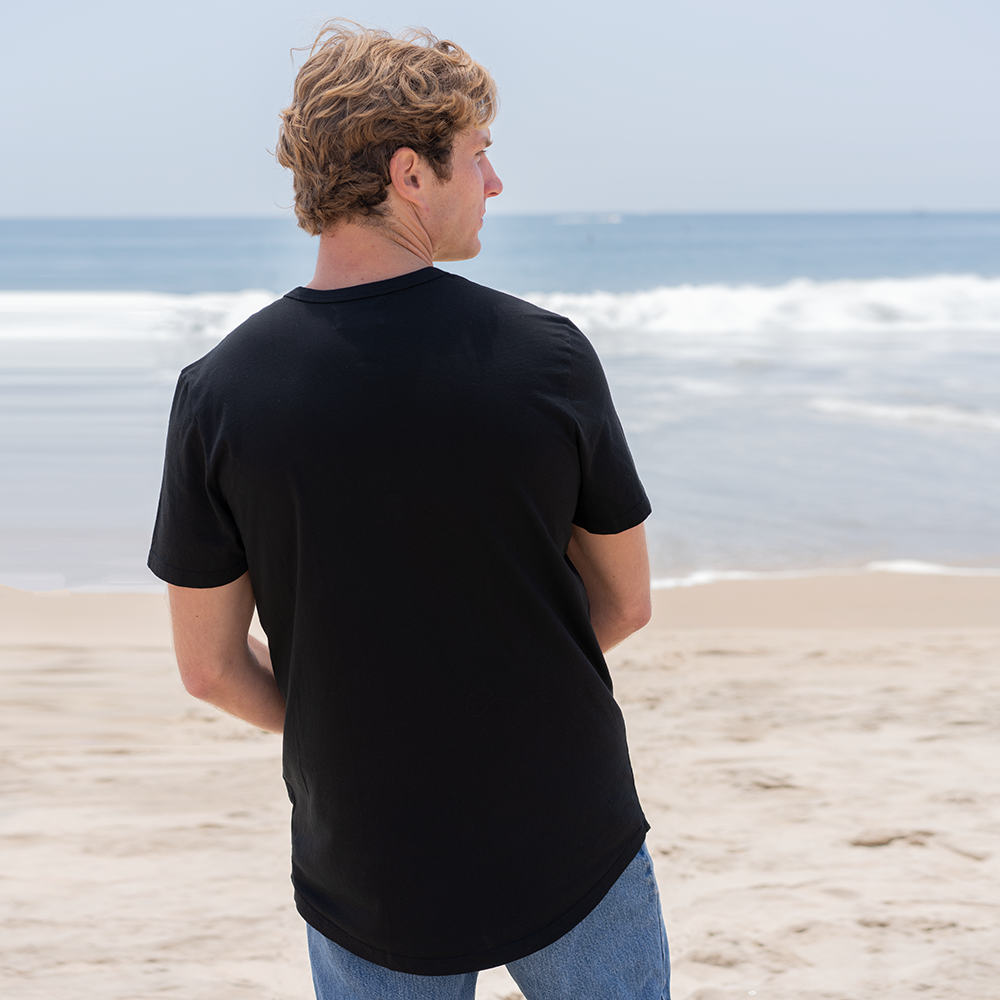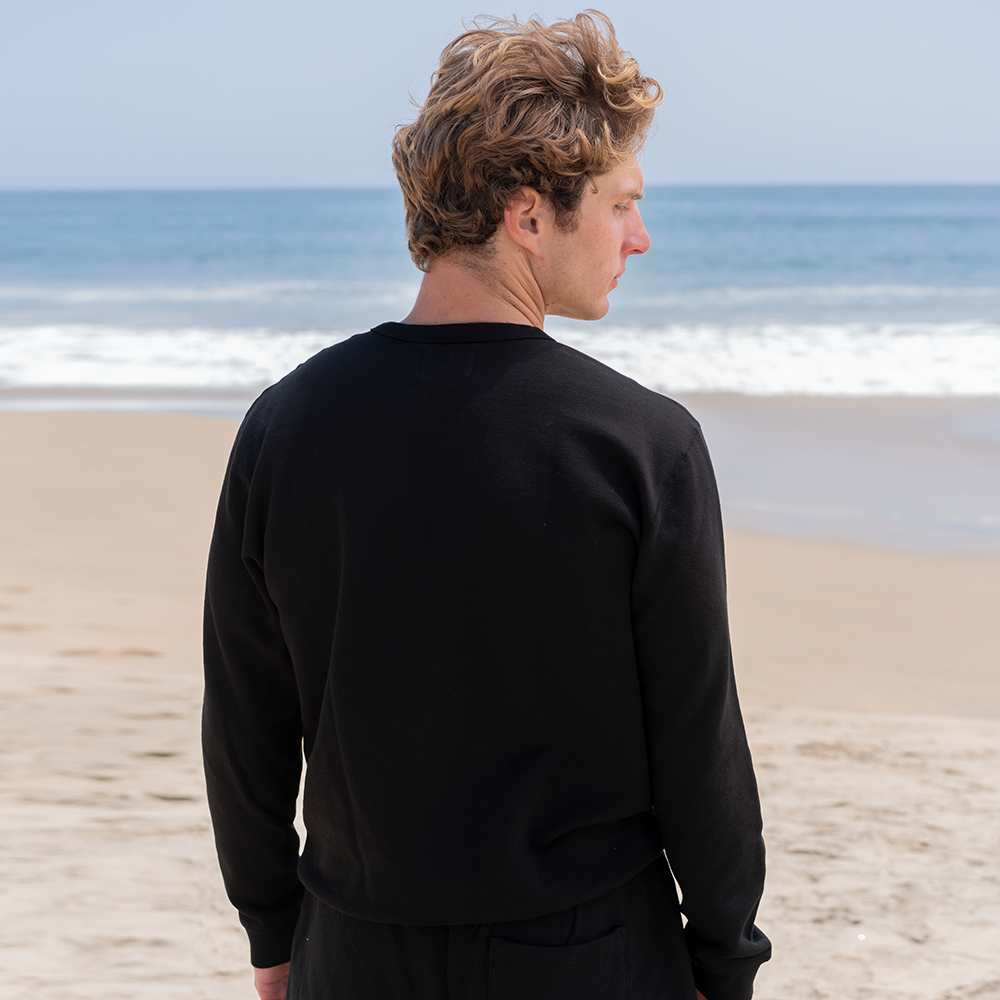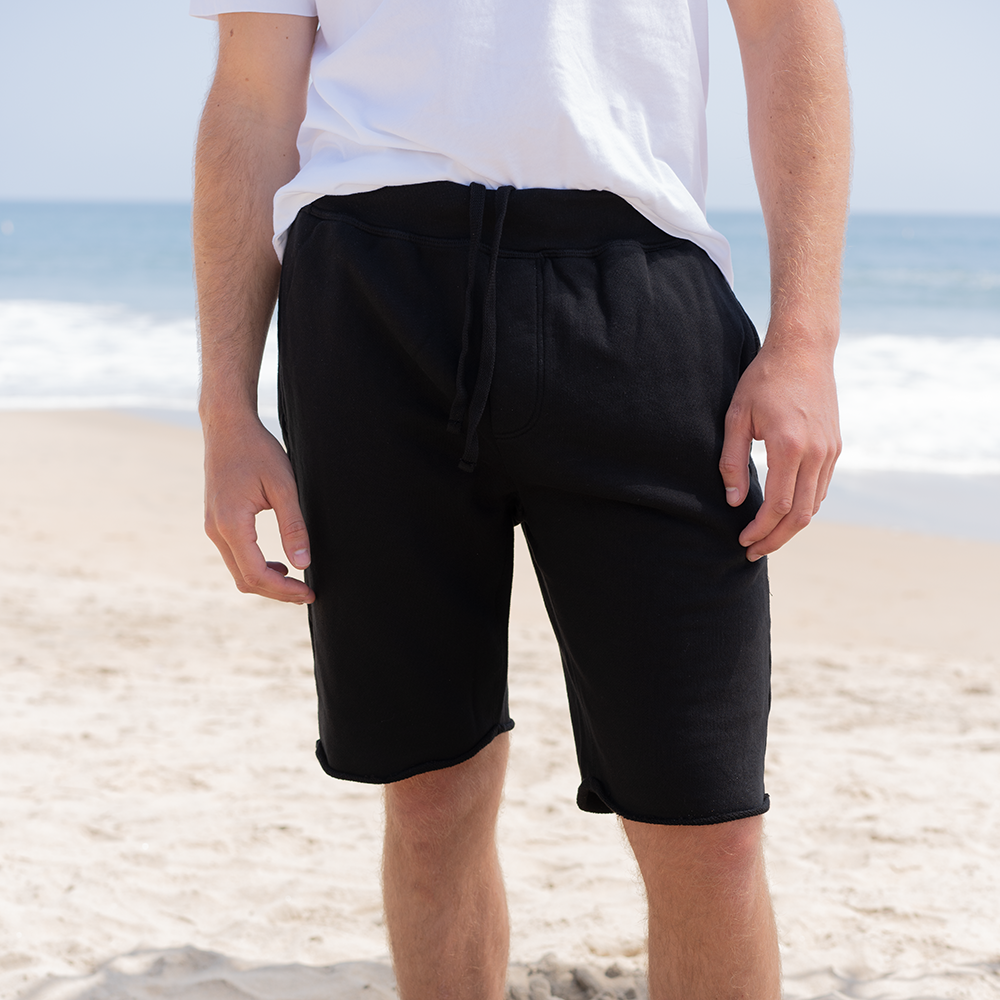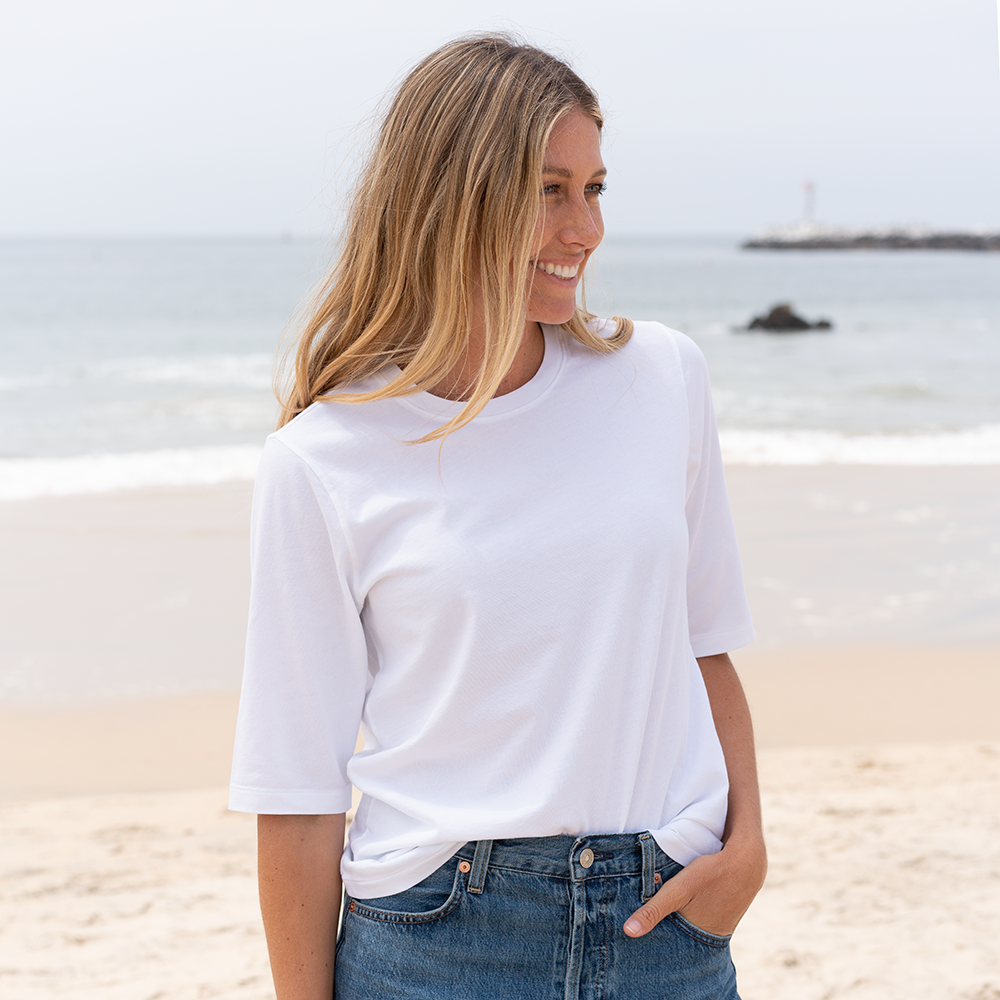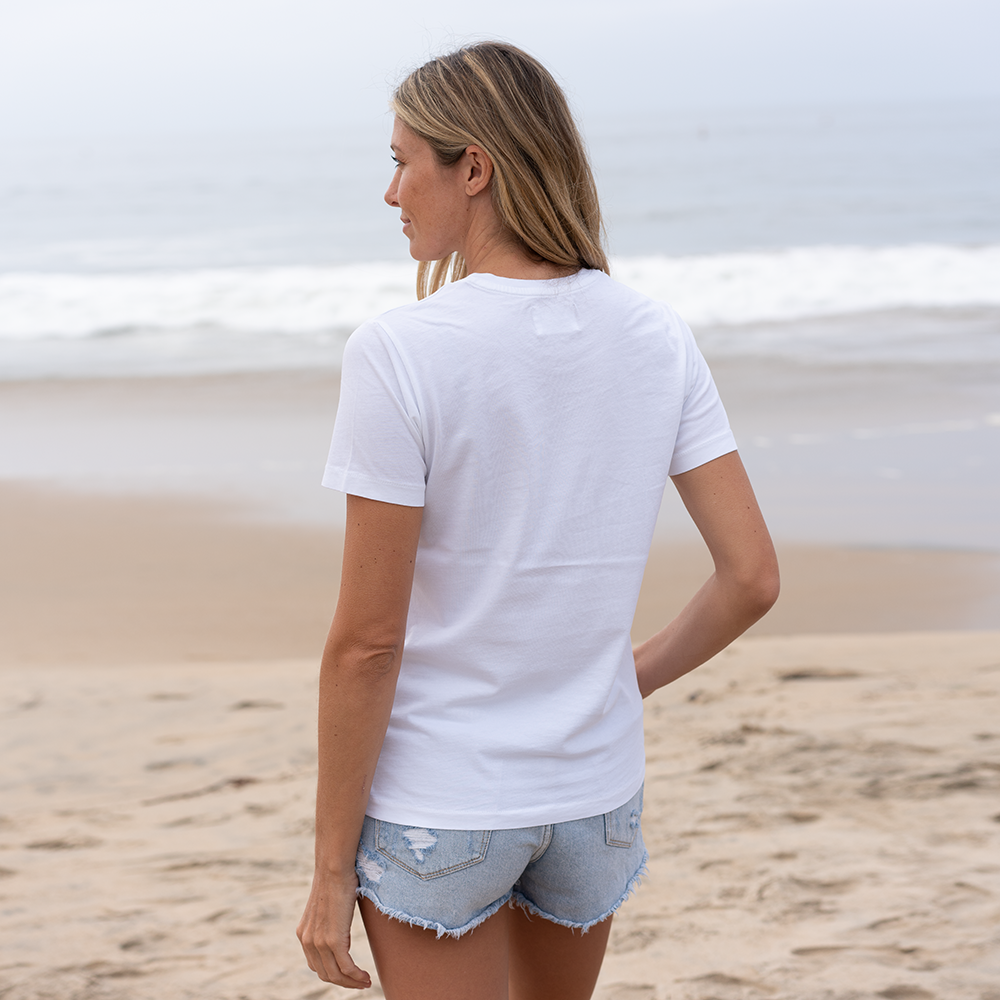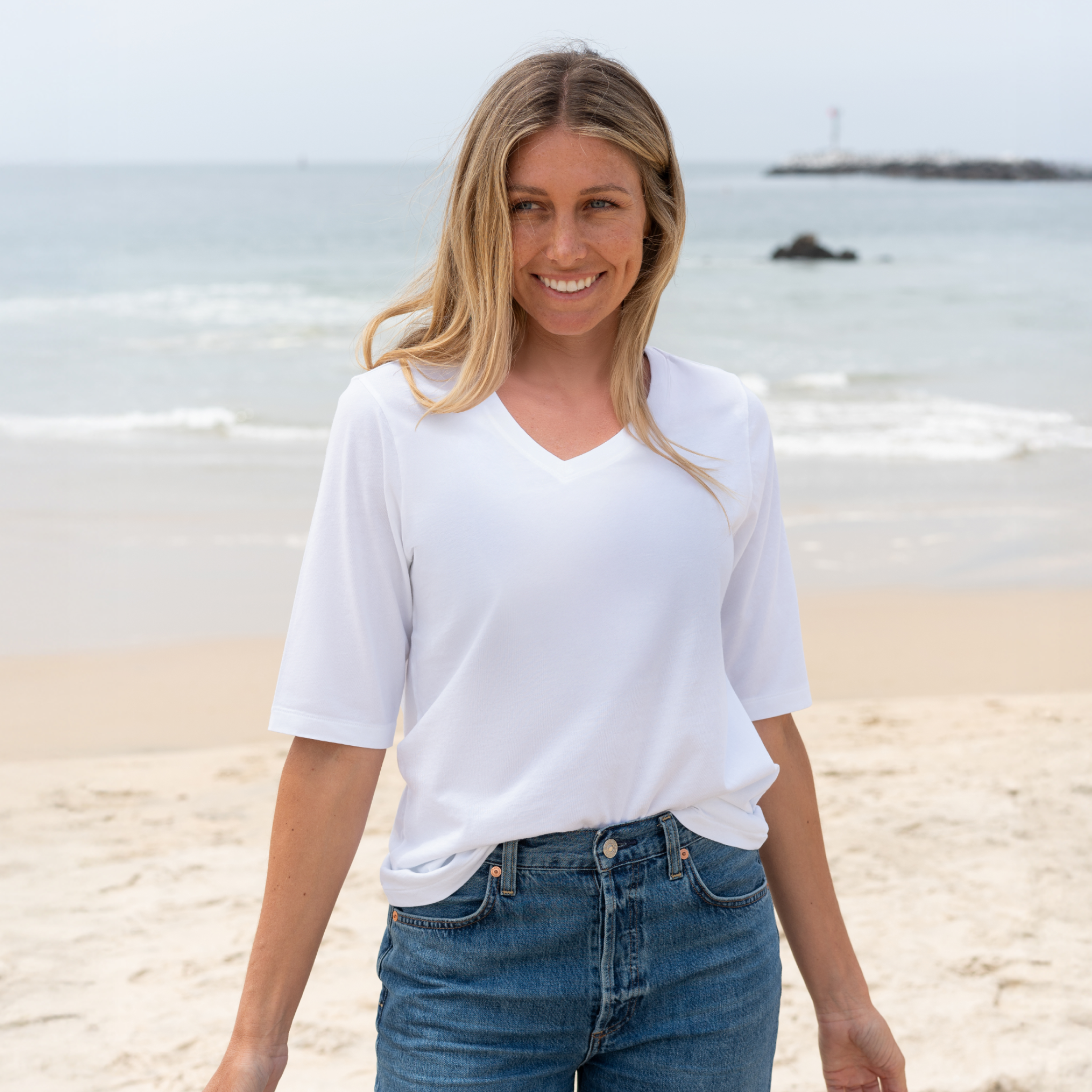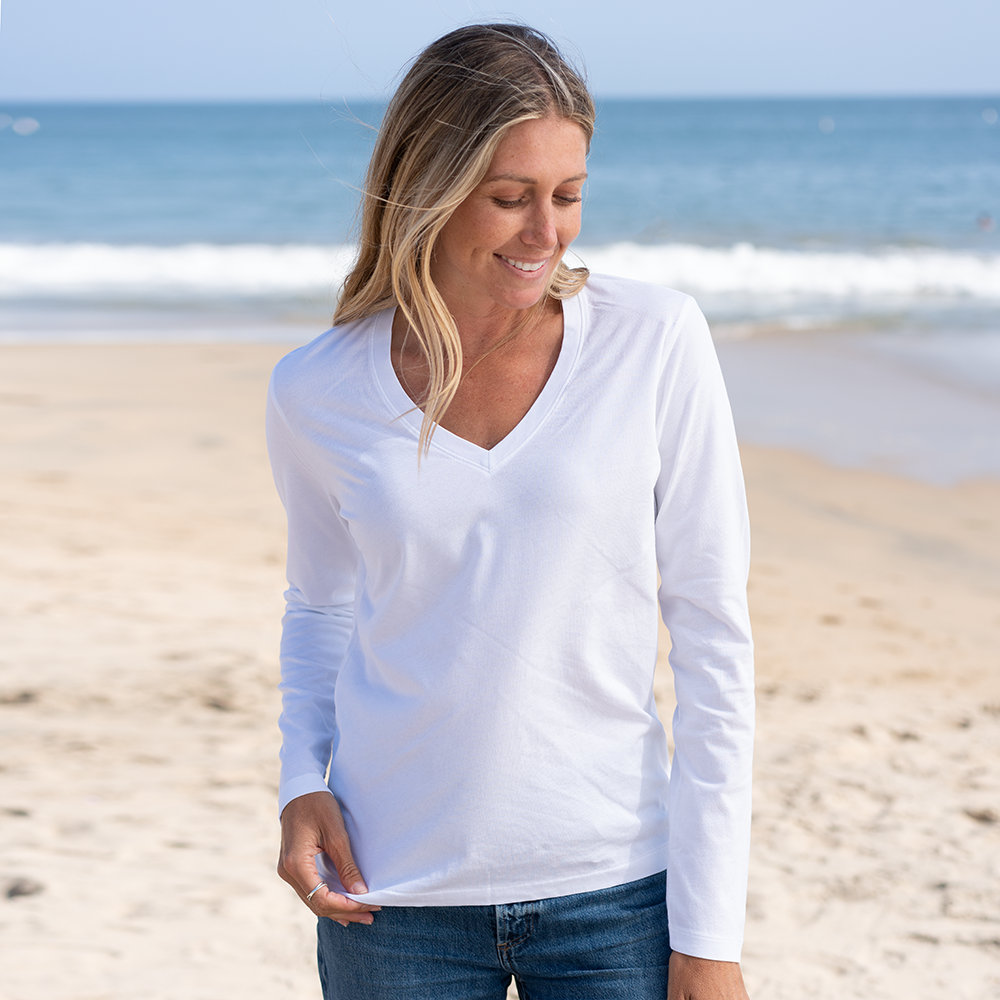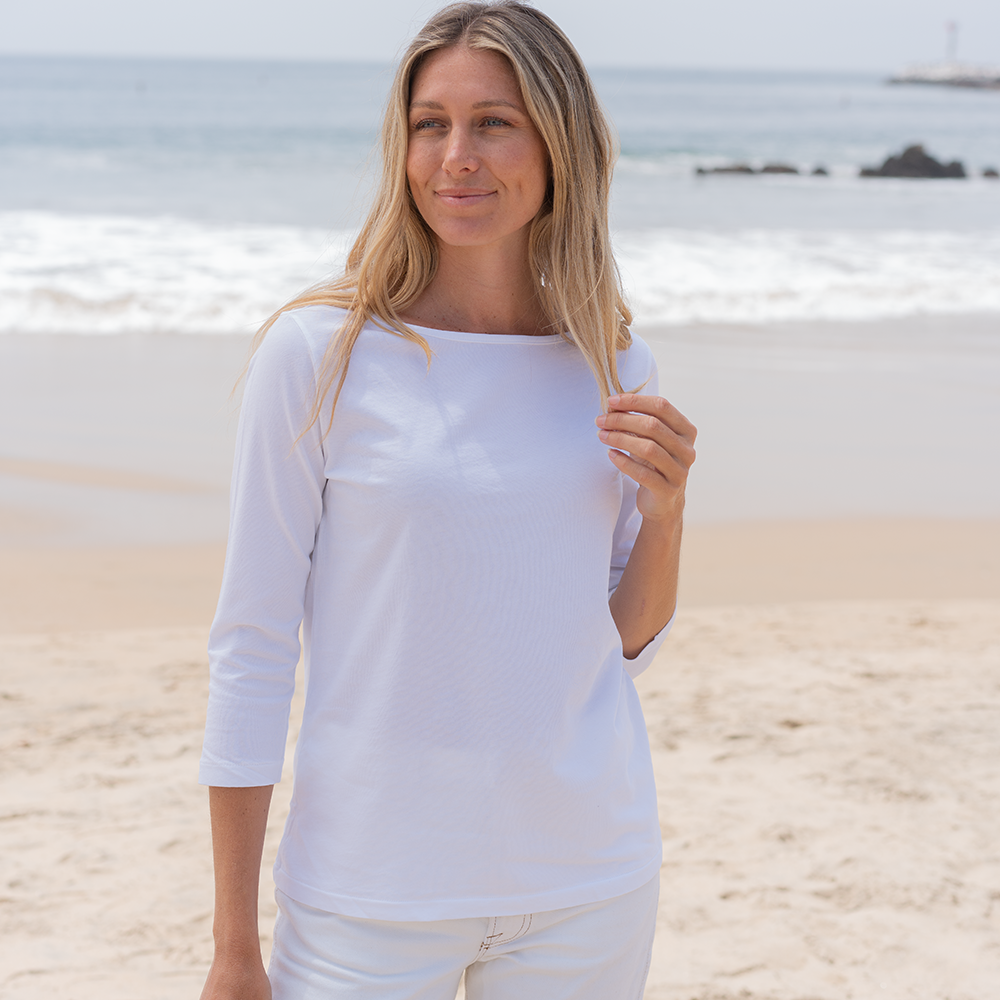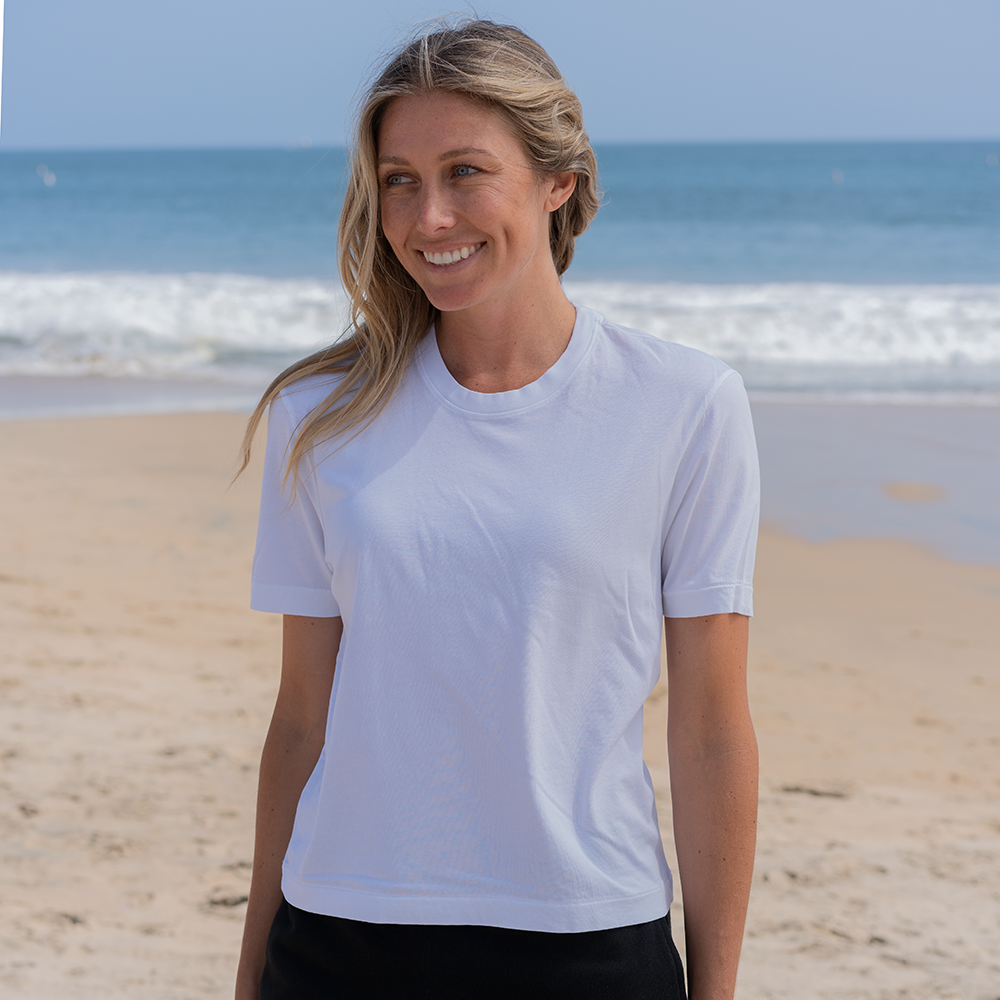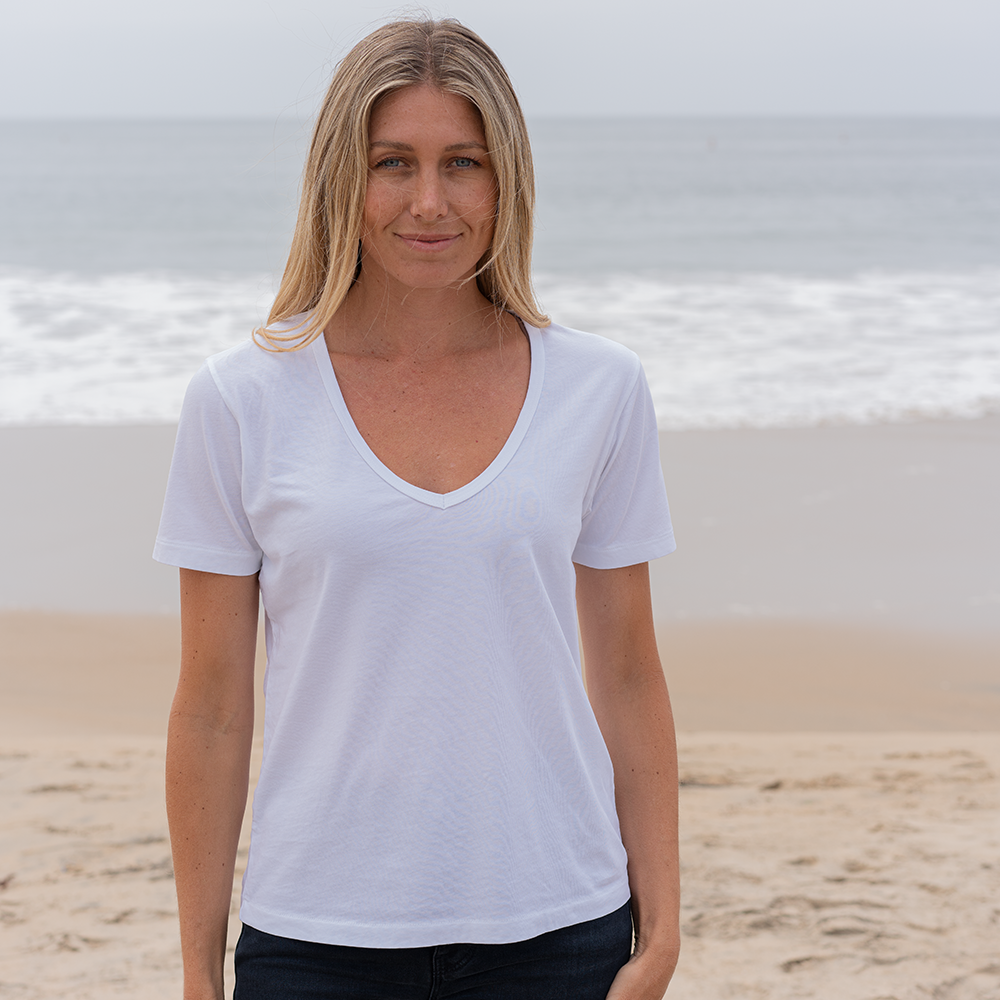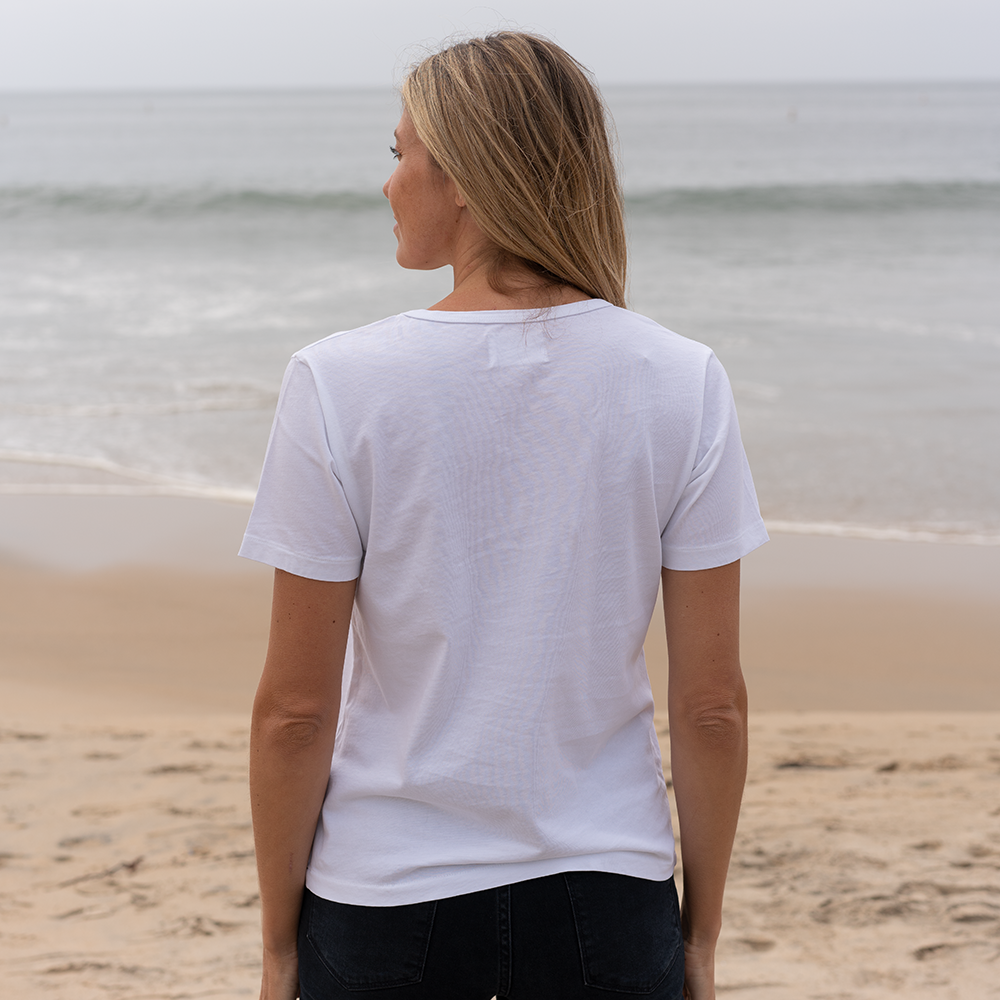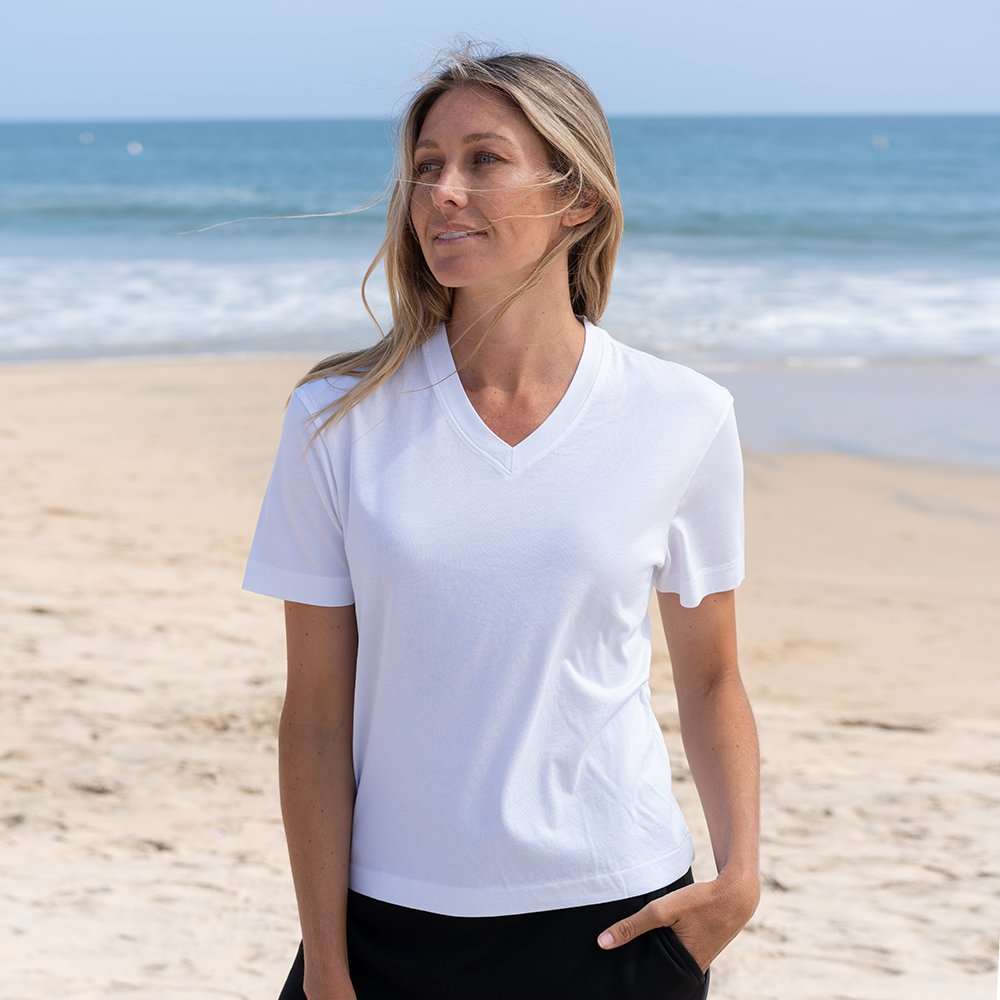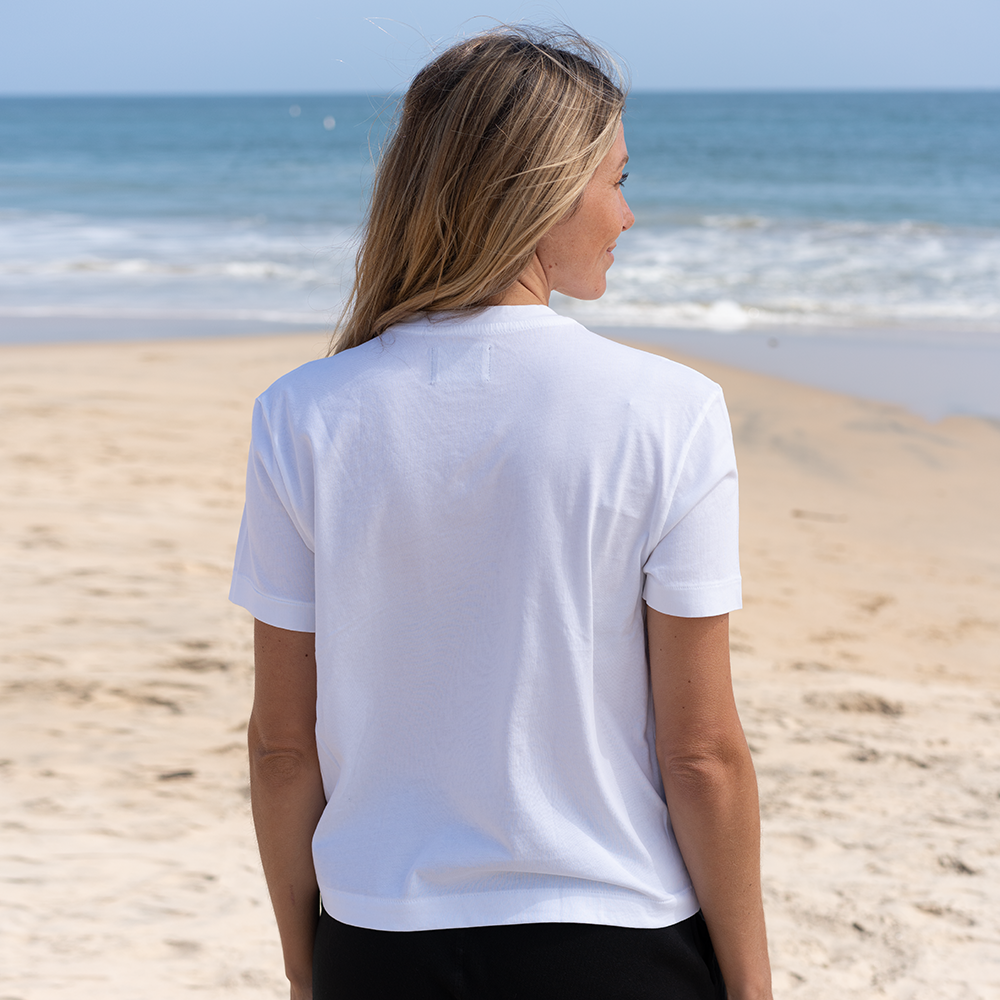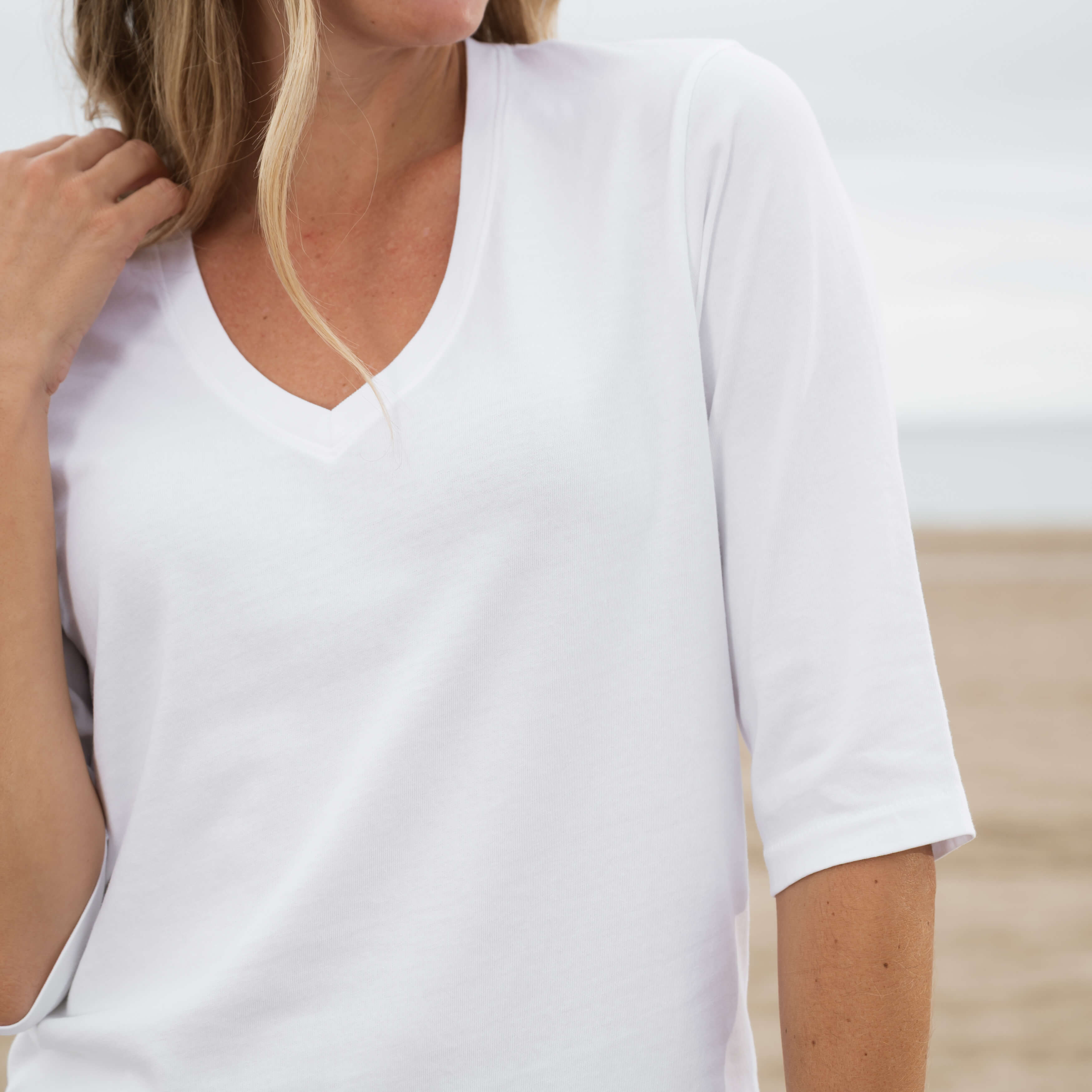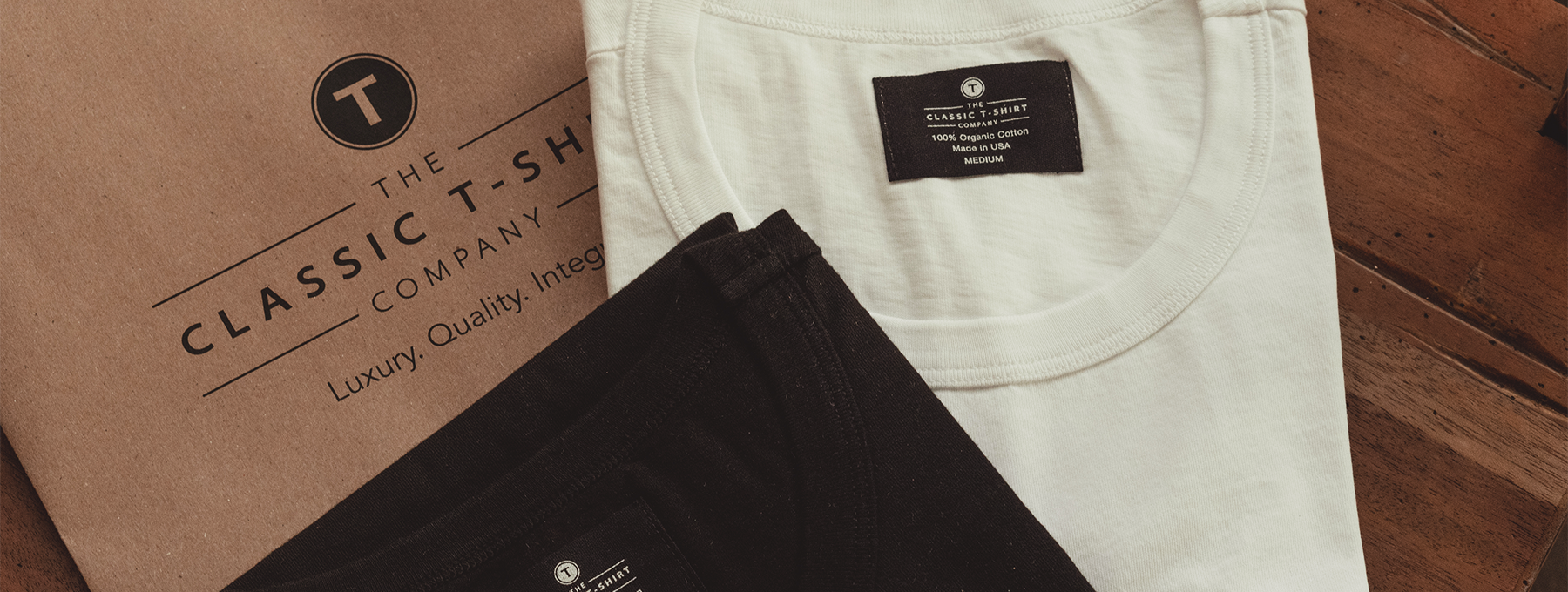
WHY SEASONAL DISCOUNTS ARE BAD FOR THE PLANET
It’s not enough to tell consumers not to participate in seasonal sales like Black Friday. As a brand, The Classic T-shirt Company would be wrong to place the blame on consumers.
It starts with the producers. The companies who make and market your clothes are the ones who need to take the initiative to operate differently, to provide better quality, and to maintain a sustainable industry. All you need to do is support the right ones.

the best t-shirts for men
FOR MEN
Why Do Companies Run Seasonal Discounts?
Seasonal discounts are a strategy used to clear stock from warehouses. Stock is the name for goods and materials that are stored in the warehouse, which in the case of fast fashion may include clothing items as well as fabrics, dyes, and chemicals.
Big fashion brands are rolling out upwards of 50 collections per year, roughly one new collection every week! More often than not, the items in those collections are produced in bulk to cut costs and maximize profit, which is already quite environmentally taxing given how inorganic cotton is grown, not to mention all the plastic-based fabrics like polyester that make clothes deteriorate faster.
Every time you wash polyester materials, loose plastic microfibers wash off the clothes and then find their way into local water sources. Just because we can’t see microfibers with the naked eye doesn’t mean they aren’t having an impact on wildlife, and thanks to overproduction, a little is becoming a lot.
Overproduction also creates problems for the warehouses--with so many collections, there’s always a need for more room to be made, and for wares to be sold quickly or thrown out. Whatever doesn’t sell gets thrown out by the company, and consumers also discard their old clothes to make room for the new. And it’s not just the clothes that get wasted.
When a company needs to create more room for more inventory, they also might discard materials, dumping them into landfills or even rivers that contaminate water sources of local communities.
Alternatively, The Classic T-shirt Company produces exclusively evergreen T-shirts which means they are suitable for purchase any time of year and will have the same minimal carbon impact. We keep our T-shirts in a small warehouse until they’re ready to be sold, which means sometimes our inventory sells out and some items may be temporarily unavailable.
This gives us the advantage of never needing to rush a sale to get rid of stock. We only ever sell the best quality T-shirts.
the best t-shirts for sale
FOR WOMEN
How Can Fast Fashion Companies Afford The Discounts?
We often talk about the quality of cotton and materials that make Classic T-shirts stand out from other T-shirts, and cheap materials is one way fast fashion brands can financially afford to be so wasteful. Unfortunately, cheap labor also plays a very significant role.
Underpaid workers, dangerous factory conditions, environmental disasters--perhaps it’s easy for this problem to exist out of sight and out of mind when so much of fast fashion production takes place in developing nations… but we refuse to take any part in exploiting human beings.
But sustainable brands are bringing production back home. Classic T-shirts are made in Los Angeles, California where everyone involved in production is guaranteed a fair wage and safety protocols. But it doesn’t stop there. We ensure that workers abroad who help source our materials are also treated the way workers should be treated: fairly.
The Root of The Seasonal Discounts Problem

Consumer culture has warped our understanding of value and the relationship businesses can have with consumers. The old model was based on a transactional relationship: seller vs consumer. The seller wants to maximize profits, the consumer wants to minimize cost. Who will win?
The old model is built to benefit only the seller at the expense of the planet and the consumer. Seasonal discounts offer an illusion of value--you pay less for that single transaction... but you’re buying into a system that will cost you more over time, leave you with poor quality , destroying the planet. It’s just not worth it.
But now there’s a new model: creators like us partnering with investors like you. In this model, everybody wins. Creators price their goods to profitably cover the cost of efficient and sustainable production practices, and the investor avoids overspending while enjoying the benefits of a superior product. And of course the planet can easily recover from organic cotton T-shirt production which is less harmful and less frequent than regular cotton T-shirt production. The old model relies on seasonal sales to give people a cheaper entry cost into their cycle. The new model breaks the cycle by making seasonal sales obsolete.
Creators of sustainable T-shirts don’t need to rely on seasonal discounts because we don’t overproduce in the first place. We don’t have clearance sales because high quality T-shirts don’t have expiration dates. Classic T-shirts are timeless, and whether they sit in our small warehouse or your sustainable wardrobe, they’re made to last.
This is ultimately changing not just the natural environment of our planet, but also the economical environment of our planet.
The more brands treat customers like statistics, the less they understand how to serve their customers’ needs, and price becomes the only thing they can offer. It becomes a race to see who can produce the most acceptable T-shirt at the lowest price as opposed to who can produce the best T-shirt at a fair price all year round.
Right now we rely mostly on our customer reviews for guidance in making better T-shirts, but healthier competition in a sustainable industry will ultimately show us new possibilities in creating a sustainable fashion industry.
We don’t compete with brands that focus on lowering costs at the expense of quality, their workers, and the planet. Instead, we look to sustainable brands who pursue ethical practices and innovations. We also always make sure our partners and organic cotton suppliers are aligned with the same values. Learn more about the how and why of sustainable T-shirts here.
How Sustainable Brands Manage Resources?
Organic cotton farming practices have already helped us innovate. When it comes to resource costs in making T-shirts, organic cotton can save nearly 2,000 gallons of water compared to regular cotton production. Read more about organic cotton farming here.
Organic cotton farming does have an impact on the environment, but we can easily offset its impact for many reasons. Chief among them is that organic cotton farming is simply not as large and persistent of an operation as industrial cotton. If everyone wore sustainable clothing, they would need to restock less often, there would be no need to overproduce for seasonal sales, no need to throw out old T-shirts and replace them with new ones--or at the very least not as often.
Even the best cotton T-shirts don’t last forever, but lasting longer makes a huge difference.
While ideally we would be able to restore, rewear, and recycle our clothes, we also would do well to realize that simply slowing down the fast fashion model will have a major positive impact for the health of the planet.
It’s Hard To Recover From Seasonal Sale Spikes
When animals drink from a lake, the amount they take gets replaced from the rain. But if everyone drinks from the same lake at the same time, the water might not be replenished enough.
Seasonal sales mirror this effect on our planet. Regular carbon emissions, discarded packaging, and wastefulness are hard enough on the planet on a regular day. The spikes in these activities caused by seasonal sales hit much harder, and set our efforts to save the planet back much farther.
When we minimize our carbon footprints, nature can recover and offset it. When we continue the overproduction fast fashion cycle, we continue the downward spiral.
We still have a chance to make a difference before it’s too late. It starts with our mindsets about how we perceive value.
Stop Chasing Disposable Discounts
Isn’t it interesting that we are prompted to buy when the value of a product is decreased by lowering its price, rather than when the value is increased by making the product better?
Perhaps if it doesn’t cost much to buy, we think it won’t cost much to replace. This keeps us in the cycle of buying more while focusing on the illusion that we are spending less.
In reality, the fast fashion cycle costs more than we can afford.
Seasonal trends in fashion are only part of the problem, our inability to recycle unwanted clothing makes their impact even worse. Fast fashion is designed so that you discard old clothes, which wear out to the point where they’re not worth refurbishing or reselling.
Let’s Talk About Reducing by Investing
Reducing your carbon footprint isn’t about reducing the value or convenience of your lifestyle. It’s about building up and investing in a better future.
You’re not just a customer. We all have the power to invest. You can choose to be part of the fast-fashion cycle, or you can join the movement to invest in a more sustainable world for yourself and all of us. Which will you choose?



